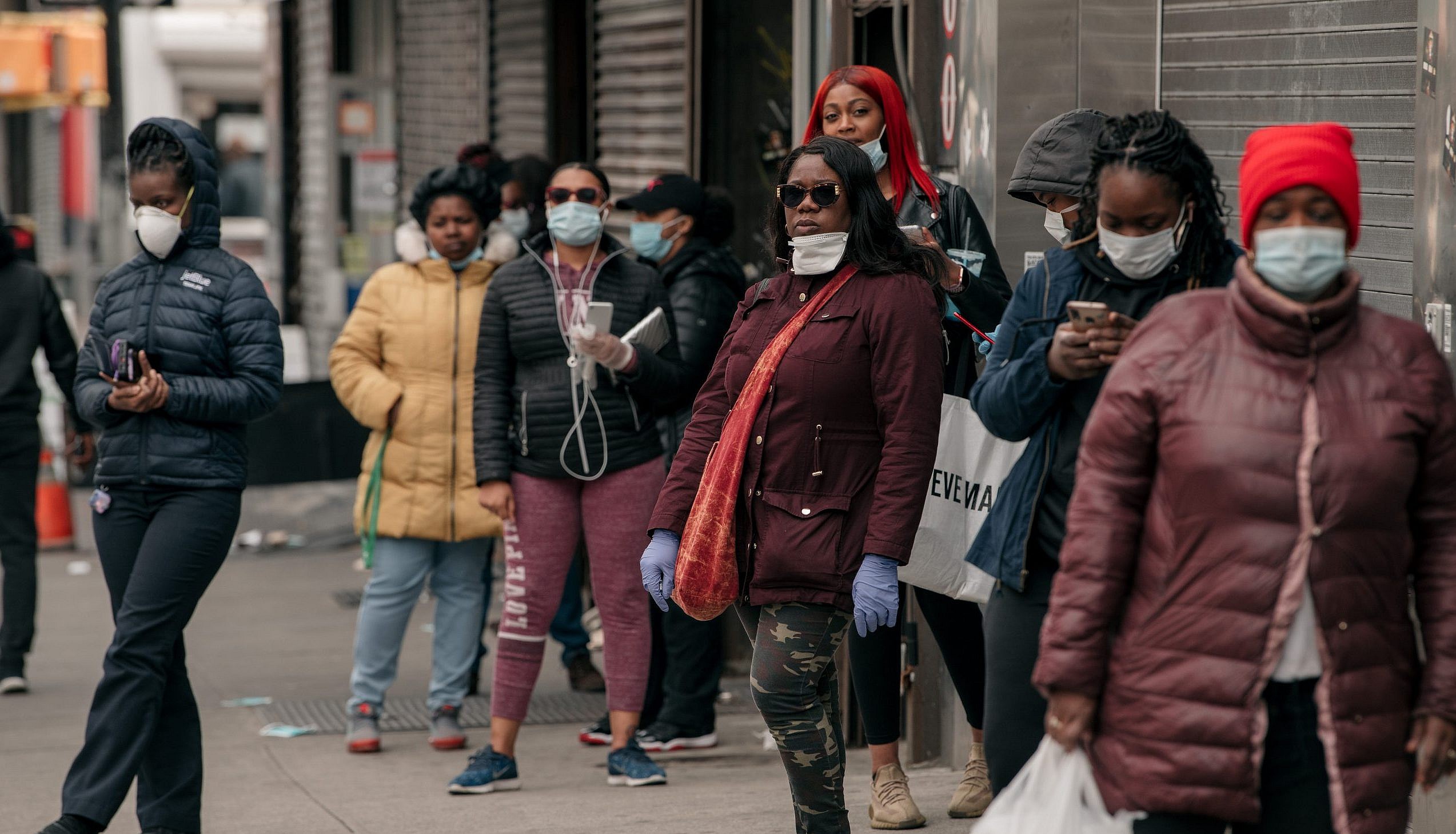Having dealt with the first few months of 2020, coronavirus is a term I’m certain none of us will be forgetting any time soon.
Everywhere I look and everywhere I listen — whether it’s television, radio, or social media — the virus is being reported on, discussed, mentioned, or emphasized, and I just can’t seem to escape it.
I definitely understand the seriousness of it. However, is there such a thing as over-communicating when it concerns a pandemic? And if so, what does that mean for the Black community when, statistically speaking, we deal with enough stress already given the racial caste in America? Inquiring minds want to know — and by inquiring minds, I mean me. I am inquiring minds.
READ MORE: How to avoid the ‘Productivity Trap’ during the coronavirus pandemic
People seem to be split on whether it’s a better idea to overcommunicate during this particular crisis or try to spare audiences from information overload. While I do unequivocally believe that it is imperative to keep citizens informed regarding the pandemic, I do also believe that there is such a thing as oversaturation — and for Black people, it can feel like just another issue heaped on top of already heavy plates.
Heck, some of us only recently came around to the idea that it’s perfectly normal to have both Jesus and a therapist. Do we really need a constant stream of gloomy messages to add to a growing list of anxiety?

According to a 2019 report from the Pew Research Center, 69% of Black people use at least one social media site per day. That’s up from the 44% of us melanin-enhanced folks that used it nearly ten years ago. It’s become a source of news. Scrolling through Twitter now, you’d be hard-pressed to find tweets that don’t mention COVID-19. For Black people who may view the social networking service as escapism, this could potentially come as an issue.
READ MORE: Travel entrepreneur chooses Africa over America during pandemic
Awario, a social listening tool for providing insights and data, stated that there were over 16 million mentions of coronavirus across social media and the internet between March 10 (around the time when things really started to gear up) and the beginning of April.
Additionally, the virus has become one of Google’s trending topics according to data found on Google Trends. Of course, none of this is remotely surprising. However, what does this unceasing streak of communications do for our state of mind?

A fact sheet found on the American Psychological Association’s website stated that studies observing the role of social and biological stress on health imply a link between socioeconomic status and ethnic disparities in stress and health. It also states that African Americans have been impacted greatly by hypertension and diabetes due to chronic stress.
Furthermore, the National Institutes of Health shared that African Americans and Latinos are more likely to be at risk for depression than our white counterparts. We deal with a lot, don’t we?
Moral of the story – stress kills, fam.
READ MORE: Coronavirus social media challenges leading to online scams
Mental health is a topic that has gained a lot of traction in recent years. More and more Black Americans are placing a focus on this. A report featured in The Lancet, a medical journal, recently identified the psychological impact of quarantining and how these effects could last for years. That combined with the fact that over 16 million people have filed for jobless benefits in the United States could be a definite cause for stress.
I would like to reiterate that I do believe we should take the coronavirus seriously. As I write this, there have been over 800,000 cases in the United States with over 42,000 deaths and over 73,000 recoveries.

For those of us who have lost family and friends, I am deeply sorry. I believe it is vital to heed the advice of medical professionals and I fully support social distancing and staying home to prevent the spread. This is a pandemic that should not be taken lightly. I simply feel that we may be doing ourselves more harm than good if we subject ourselves to an endless barrage of updates, some of them potentially untrue or sensationalized.
I believe that if some of us continue to tread in the negativity and grim state of the world, we’ll drown. To that end, perchance it would behoove us to seek updates from established, authoritative sources. If another one of my friends texts me about what they heard from their cousin that works at the Pentagon, I may need to be wheeled into a psychiatric hospital.
As a Black man, I am privy to the bevy of problems that plague people that look like me on a continual basis — racism, high blood pressure, mass incarceration, systematic inequality, and voter suppression to name a few. I just want all of us to protect our stability and peace of mind by limiting our exposure to what’s relevant.
Mental health is wealth, fam. These are nerve-wracking times for sure, but if we can try not to add to our own personal stresses, we may be better off.
Anything more would be a tough pill to swallow.

Jaylen Christie is a public relations strategist leading strategic communications planning and execution of ongoing publicity initiatives that generate media coverage. Recognized by Black Enterprise magazine as a 2019 Modern Man of Distinction, Jaylen has a bachelor’s degree in journalism from Florida A&M University, a graduate certificate in corporate communication from the University of Central Florida, and is a proud member of Alpha Phi Alpha Fraternity, Incorporated. He is a proponent for diversity and inclusion.


